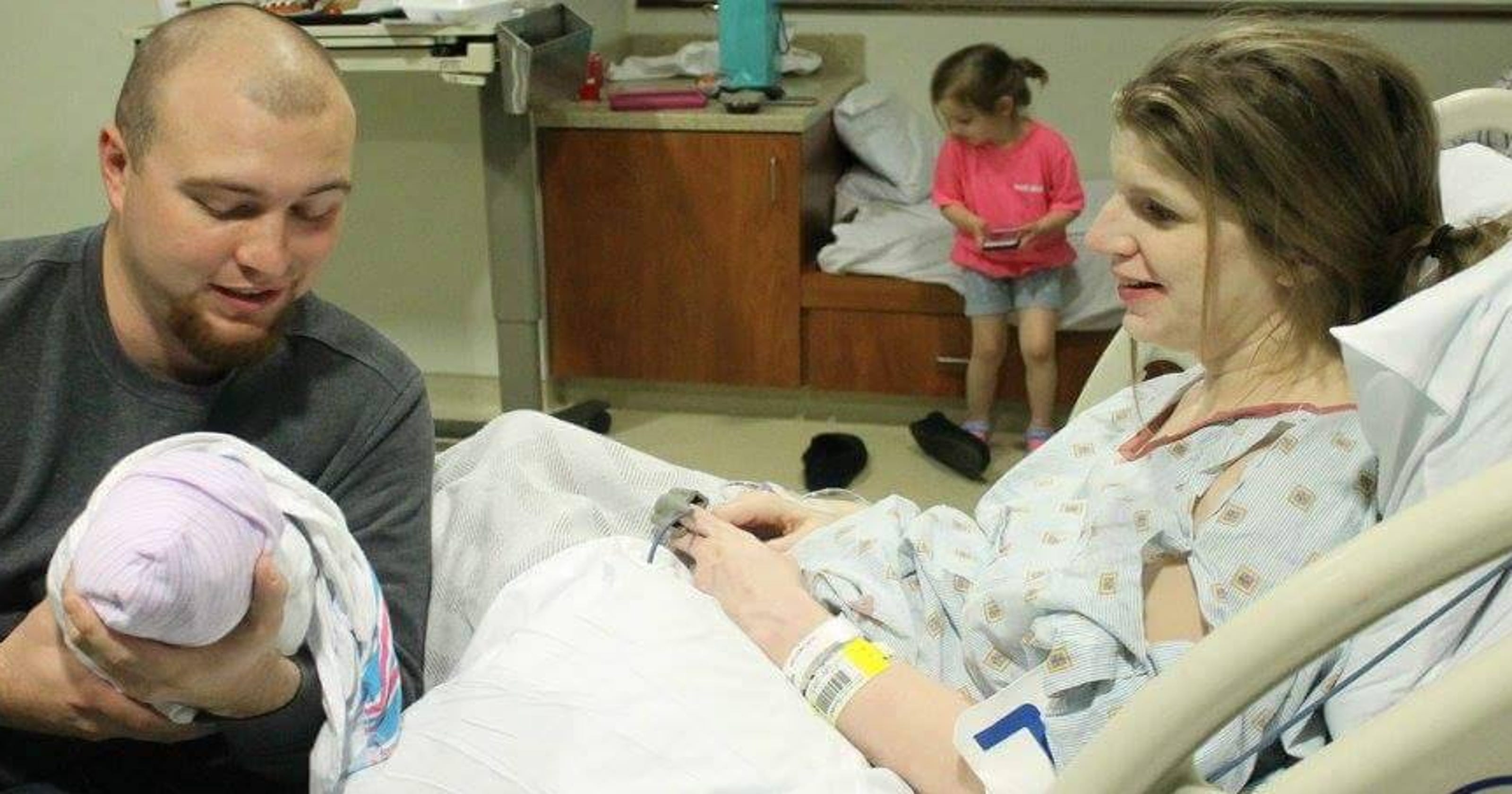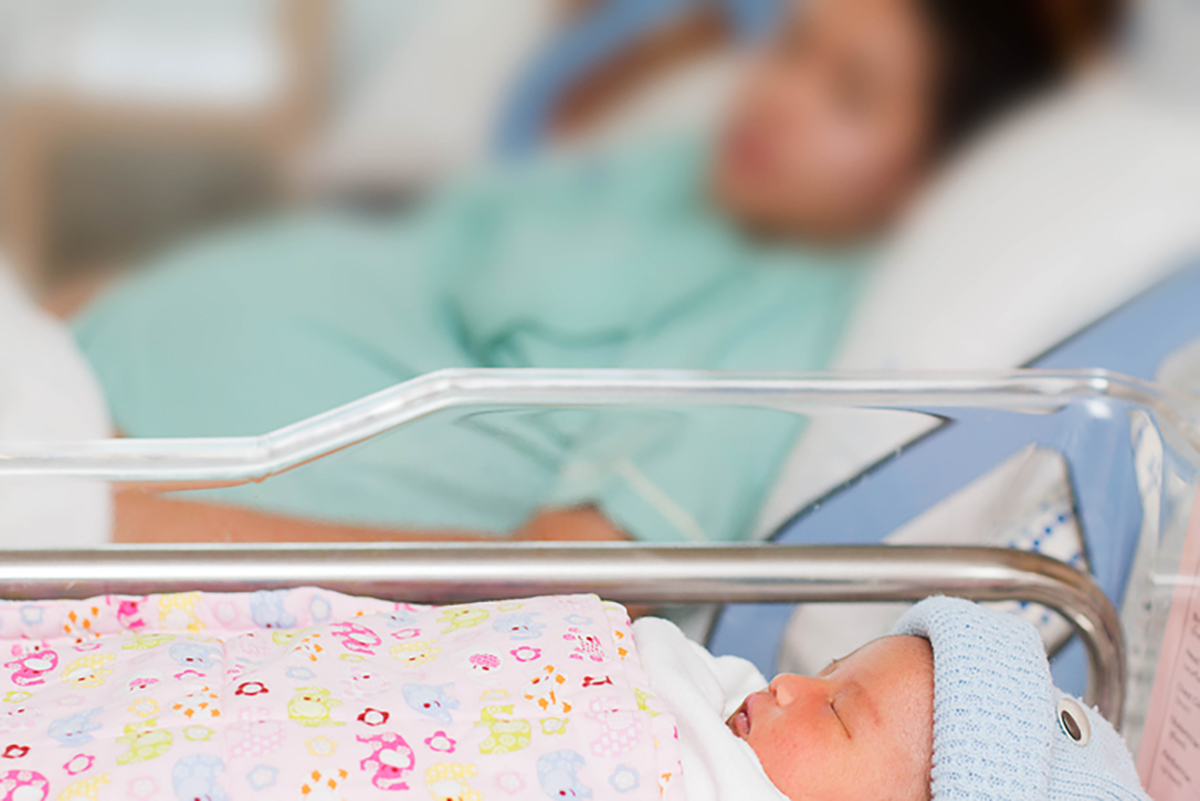Mothers Die With Cancer After Giving Birth
The Unimaginable Loss - Mothers Die with Cancer After Giving Birth
Mothers, you know, are often the very bedrock of a family. They are the ones, in a way, who build everything from the ground up, creating a home, providing comfort, and offering, perhaps, wholesome choices, much like a good health food store aims to do. We celebrate them, too, on special days, giving flowers and gifts, recognizing their incredible contribution. This tradition, which is, in fact, one of the biggest celebrations, really shows how deeply we appreciate them. But sometimes, even the strongest foundations face a challenge that feels truly overwhelming.
It is a situation that no one ever wishes to consider, a moment that feels truly unfair: when a mother, having just brought new life into the world, faces a terminal illness like cancer. This kind of news, coming at a time meant for pure joy and new beginnings, can shatter a family’s sense of security. It leaves behind a profound sense of disbelief and a deep, aching sadness.
The thought of a baby growing up without their mother, or a family having to adjust to such an immense absence right after a birth, is just heartbreaking. This article aims to explore the quiet struggles that happen when mothers face such a difficult situation after giving birth. We will also think about how communities can offer support and care during these incredibly tender times.
Table of Contents
- Facing the Unthinkable
- The Immediate Impact When Mothers Die with Cancer After Giving Birth
- The Impact on Little Lives
- Long-Term Care for Young Ones When Mothers Die with Cancer After Giving Birth
- Community's Embrace
- Building Community Care When Mothers Die with Cancer After Giving Birth
- Offering a Helping Hand
- Practical Steps to Help When Mothers Die with Cancer After Giving Birth
Facing the Unthinkable
Life often brings unexpected turns, but few are as devastating as a new mother receiving a diagnosis that threatens her life shortly after childbirth. This moment, which should be filled with quiet cuddles and the simple happiness of a new family, becomes, in a way, a time of immense sorrow. The initial joy of a baby’s arrival can quickly give way to a heavy weight of worry and grief. It is a stark contrast to the usual celebrations we associate with mothers, like the big, happy gatherings on Mother's Day, where we give flowers and gifts. This situation, you know, turns all those expectations upside down.
Families find themselves in a truly difficult spot, trying to care for a newborn while also dealing with a mother’s serious illness. The emotional toll is just immense, affecting everyone involved. There is the new baby, who needs constant attention, and other children, perhaps, who might not quite grasp what is happening. The partner, too, faces the double burden of supporting their loved one and taking on new parenting duties. It is a time when the usual support systems, like those that help mothers with daily life or finding family-friendly activities, feel very far away.
The dreams and plans for the future, which were just beginning to take shape with the arrival of a new child, often feel like they are crumbling. This period becomes a race against time, a desperate hope for a different outcome, and a struggle to make every moment count. It is a quiet, private battle, fought within the walls of a home, yet its ripples spread out to touch everyone who cares.
The Immediate Impact When Mothers Die with Cancer After Giving Birth
The immediate aftermath of such a loss is, quite frankly, a whirlwind of emotions and practical challenges. There is the raw pain of grief, a feeling that can feel very, very heavy. At the same time, there is a tiny new person who still needs everything: feeding, changing, comfort. This contrast between deep sorrow and the undeniable demands of a newborn creates a truly unique and difficult situation for those left behind. It is a time when people might feel completely overwhelmed, trying to figure out how to keep going.
The partner, or perhaps other close family members, suddenly take on the full role of primary caregiver for the baby. This is a huge shift, especially when they are also trying to cope with their own sadness. They might have to learn, very quickly, all the little things a new mother typically does, from soothing a crying baby to managing feeding schedules. It is a time when, you know, even simple tasks can feel like a mountain to climb. The community often sees mothers as the central figures in raising children, a role that has, in fact, been historically theirs, and this sudden absence changes everything.
Beyond the direct care of the baby, there are also the everyday things that need attention. Meals still need to be made, bills need to be paid, and the household needs to keep running. For families who have built their lives around the presence of a mother, this sudden void can feel impossible to fill. It is a period where, quite literally, every single day presents a new hurdle, and the emotional exhaustion can be profound.
The Impact on Little Lives
When a baby loses their mother so early in life, the effect is, in some respects, truly profound, even if they are too young to remember. Infants and toddlers rely on their primary caregiver for comfort, security, and a sense of routine. The absence of their mother, the one who held them close and knew their every little cry, can create a deep, quiet impact on their early development. It is a loss that shapes their world from the very beginning, even if they do not have words for it.
Older children, if there are any, experience this loss in a different, but equally heartbreaking, way. They understand what has happened, and they feel the absence keenly. Their world, which felt safe and predictable, can suddenly seem very uncertain. They might struggle with feelings of confusion, anger, or deep sadness. They might also feel a need to protect their new sibling, or, perhaps, feel a sudden pressure to grow up too quickly. It is a lot for a young person to carry, and they need a lot of gentle care.
The family unit, which was just expanding, now has to figure out a new way of being. The remaining parent or caregivers step into a role that was, in a way, meant to be shared. They have to provide all the love, comfort, and guidance that two parents would typically offer. This means, too, that they must find ways to talk about the mother who is gone, keeping her memory alive for the children as they grow, so they know who she was and how much she loved them.
Long-Term Care for Young Ones When Mothers Die with Cancer After Giving Birth
Providing ongoing support for children who have lost their mother so early is, in a way, a continuous act of love and commitment. As they grow, these children will likely have questions about their mother, about her life, and about the circumstances of her passing. It is really important to create an environment where these questions are welcomed and answered with honesty and tenderness, in a way that is right for their age. Keeping memories alive, perhaps through stories, pictures, or special traditions, can help them feel connected to the mother they never truly knew or barely remember.
The emotional journey for these children can be a long one, with feelings of grief resurfacing at different stages of their lives, like on holidays such as Mother's Day, which can be particularly poignant. They might need extra support from family, friends, or even professionals who understand childhood grief. Just as a car care product helps keep things running smoothly, consistent emotional support helps these young lives move forward, even with such a profound absence. It is about helping them build a strong sense of self and belonging, despite the early loss.
The wider family and community also play a truly important part in this long-term care. Grandparents, aunts, uncles, and close family friends can step in to offer additional layers of support, providing different perspectives and kinds of love. Creating a network of caring adults around these children helps to fill some of the void. It is about making sure they feel surrounded by people who care deeply about their well-being and who are there for them, not just for a little while, but for the long haul.
What Role Does Community Play in Healing?
When a family experiences the loss of a mother, especially after giving birth, the surrounding community has a truly vital role to play. It is in these moments that the strength of a neighborhood, a group of friends, or even a wider network can make a real difference. Think about how a community might come together to support a local business that has built its reputation from the ground up, or how a family-friendly site helps people find things to do. Similarly, a community can rally around a grieving family, offering comfort and practical help. This collective effort, you know, can provide a much-needed safety net.
The immediate needs can be quite simple but incredibly helpful: bringing meals, helping with childcare for the new baby or other children, running errands, or just being a quiet presence. These acts of kindness, small as they might seem, reduce the daily burden on the grieving family, allowing them a little space to process their feelings. It is about showing up and offering tangible support, rather than just words. This kind of care, in a way, helps the family keep their daily life going when they feel they cannot.
Beyond the immediate practicalities, the community offers emotional support. This can involve listening without



Detail Author:
- Name : Osvaldo Lehner
- Username : sydni96
- Email : ssteuber@hotmail.com
- Birthdate : 1988-06-09
- Address : 23929 Marietta Route Willside, VT 97097
- Phone : +1-931-263-9601
- Company : Hamill, Kihn and Breitenberg
- Job : Power Plant Operator
- Bio : Animi optio omnis accusantium ratione tempora. Reiciendis doloremque atque aut ipsa harum ea. Rerum hic hic incidunt aspernatur nam aliquam reiciendis. Ad rerum autem pariatur recusandae.
Socials
facebook:
- url : https://facebook.com/idare
- username : idare
- bio : Voluptatibus omnis nostrum reiciendis est ea itaque.
- followers : 185
- following : 1763
twitter:
- url : https://twitter.com/irwin_dare
- username : irwin_dare
- bio : Alias et eum est voluptas est. Quas ab laborum adipisci reprehenderit. Quia porro ut in. Odit quos delectus sunt possimus qui ut tempore enim.
- followers : 6786
- following : 2003
instagram:
- url : https://instagram.com/irwin.dare
- username : irwin.dare
- bio : Animi modi sapiente temporibus incidunt et. Magni maxime tempora qui aut.
- followers : 6857
- following : 2320